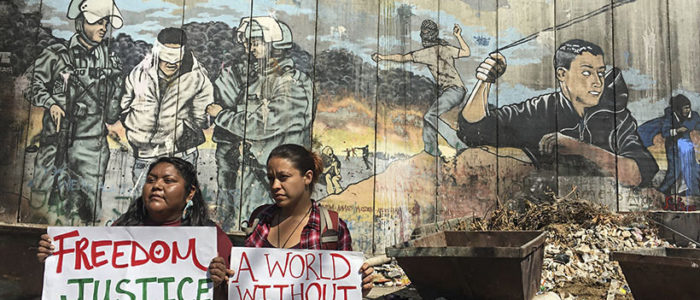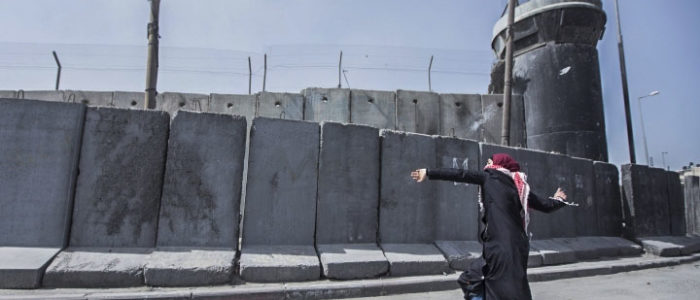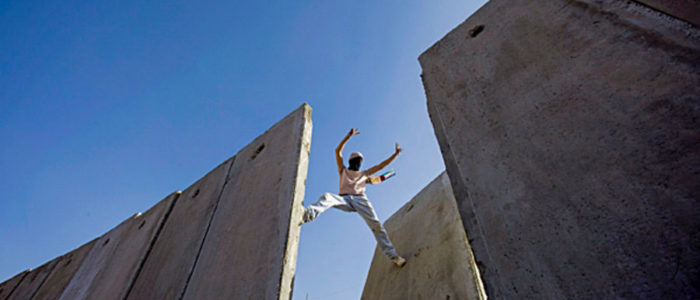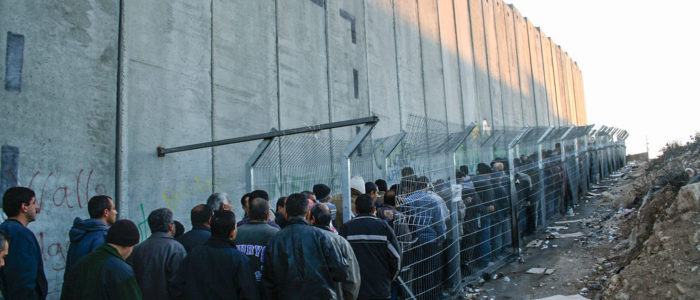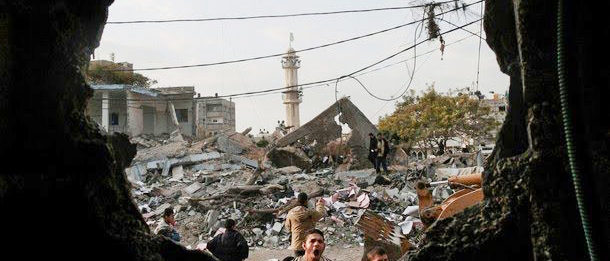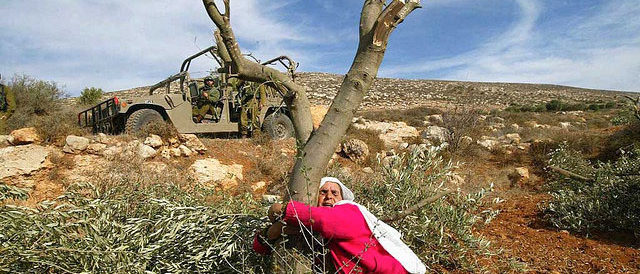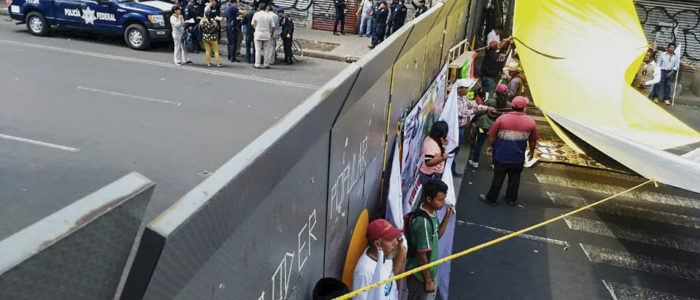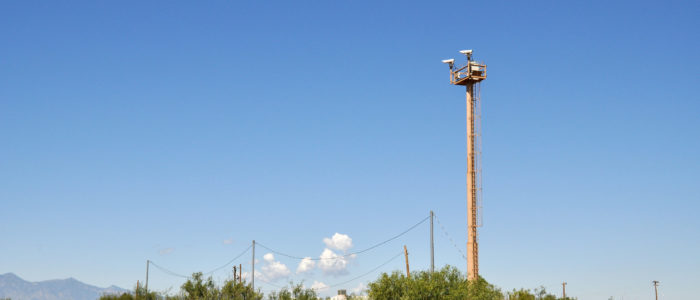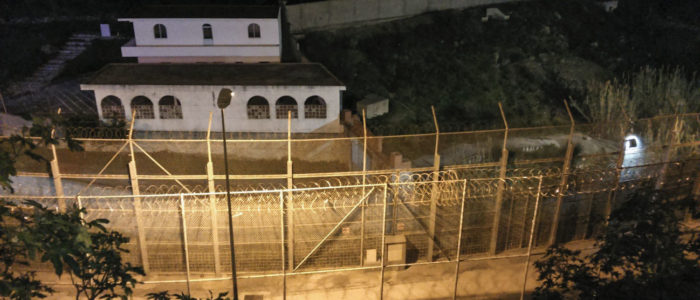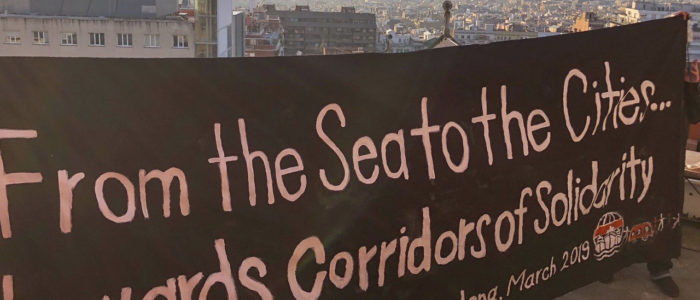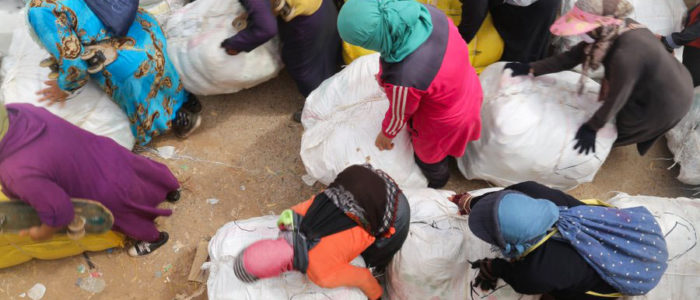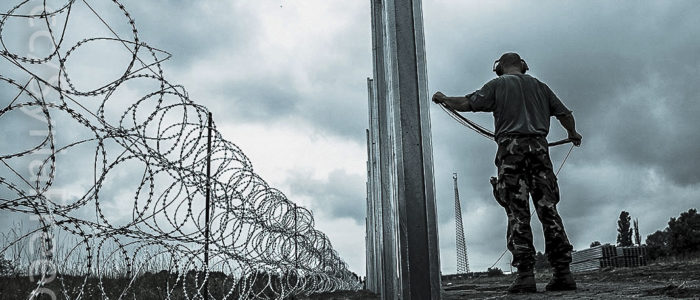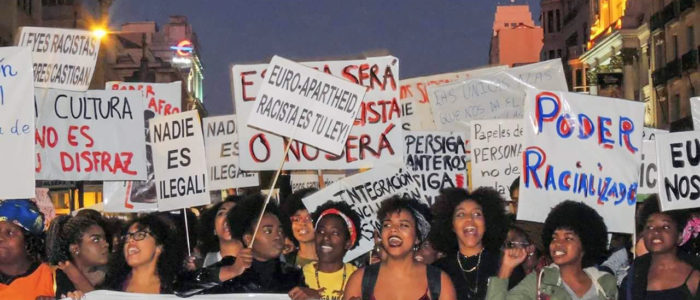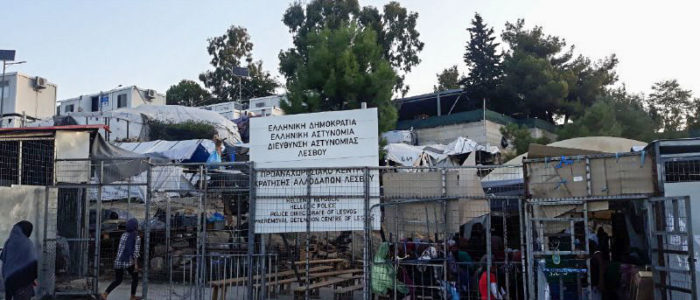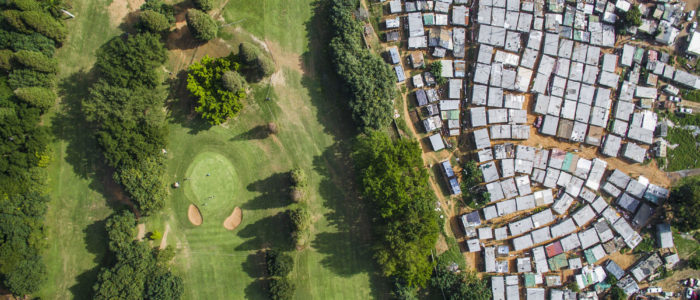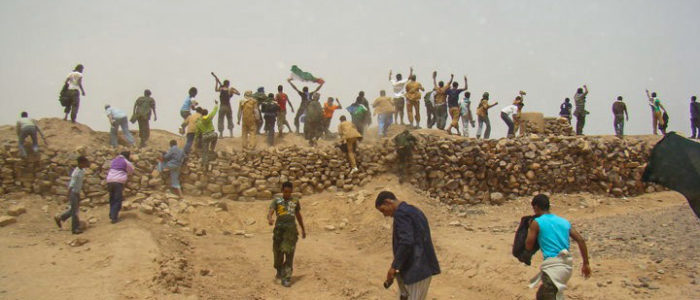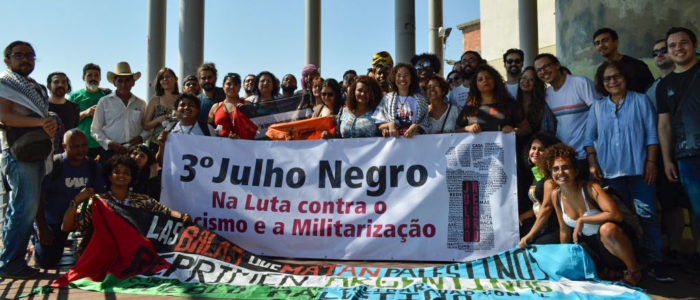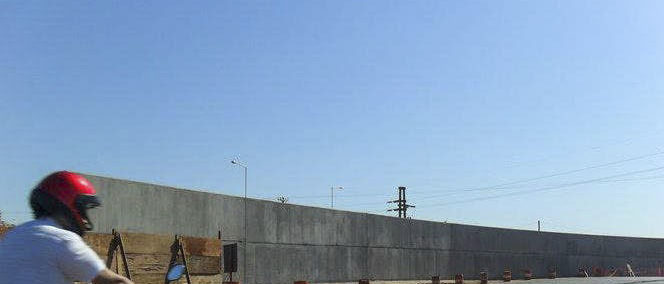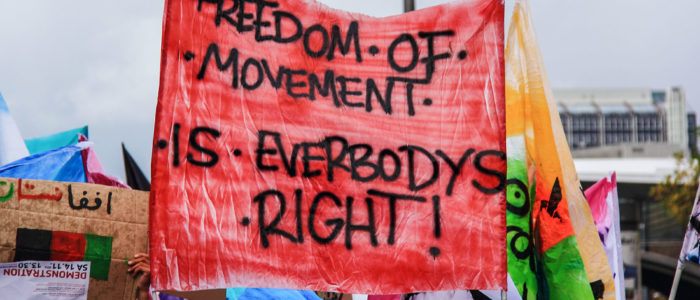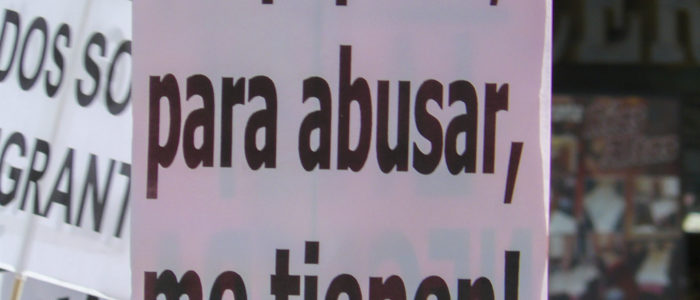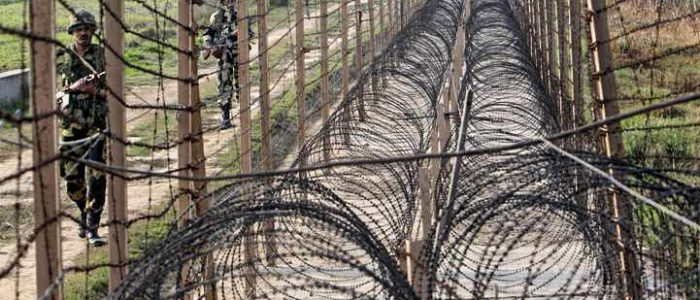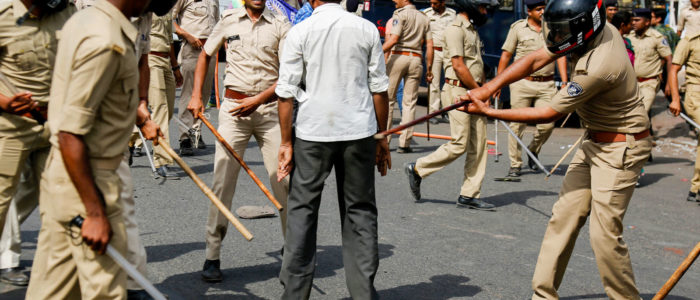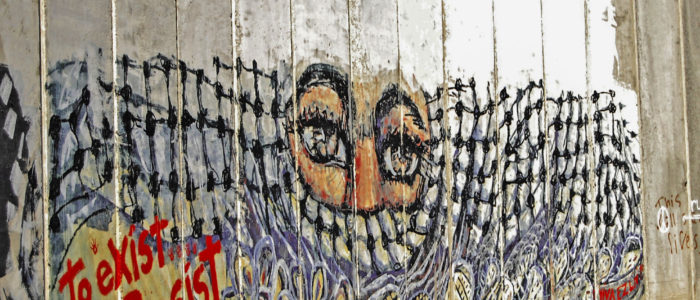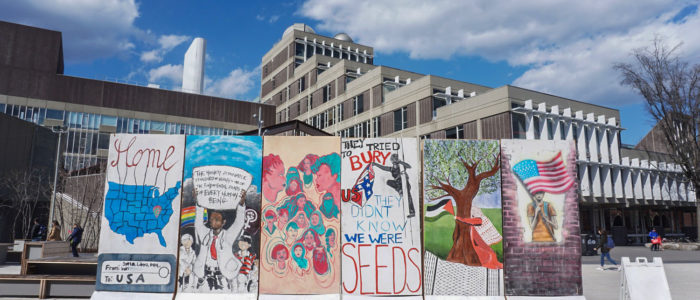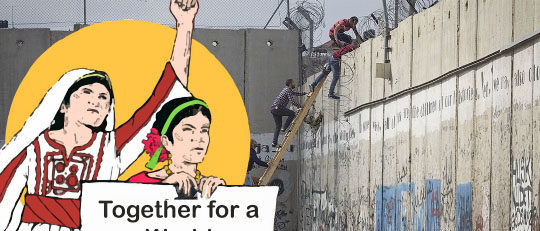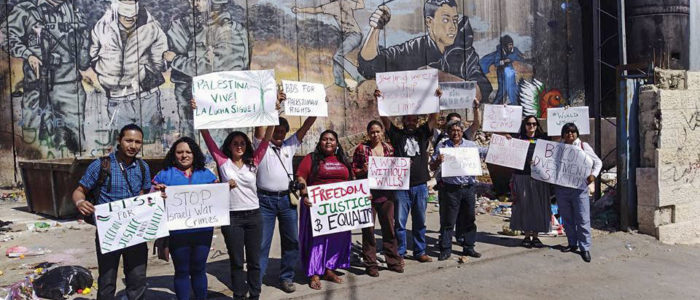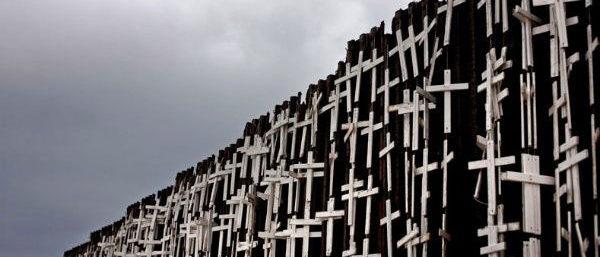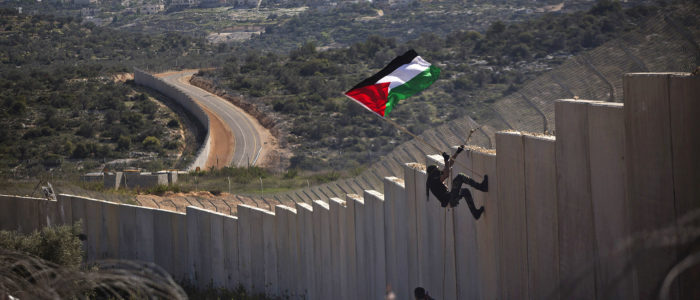Integration at gunpoint*
The Line of Control in Kashmir that marks the border between Pakistan and India.
Since August 5, 2019, Kashmiris around the world have held protests to show the world that India’s moves in Kashmir are reckless and destabilising. The initiatives by the Union of India threaten the identity and existence of the people of Kashmir. In an unscrupulous and unconstitutional move, the Government of India pushed a number of bills aimed at bringing about demographic change through Parliament on August 5, 2019. These bills render Article 370 inoperative, and seek to bifurcate the state of Jammu and Kashmir into the Union Territories of Jammu & Kashmir and Ladakh. Both these objectives are wholly arbitrary and outrageously unconstitutional, resulting in an abject disenfranchisement of the people of Jammu and Kashmir. Simultaneously, since August 5, 2019, the Government of India has cut off all lines of communication into Kashmir. We are being muzzled to ensure that our dissent is not recorded. The action creates a barrier between Kashmiris and the global community. As I write, the situation is developing into a massive humanitarian crisis.
The primary objective of the move is to force demographic change and control the natural resources of Kashmir. The Kashmiri people fear we will be dispossessed of our land and that militarised settlements will be built in our neighbourhoods, similar to Israeli settlements in Palestine. Kashmir is the world’s most densely militarised zone with one armed soldier for every 7 civilians. India’s own Home Ministry states that the number of armed rebels in Kashmir is between 70 and 200, most of who are boys aged 15 to 25. The obscene number of Indian soldiers is primarily intended to control the population of Kashmir which has been erupting in mass civilian protests against the government of India for 70 years now.
The lack of accountability over ghastly actions that have taken place during the last 30 years of war in Kashmir has shown there is a clear barrier to justice for Kashmiris at the national as well as global levels. Kashmir is ruled by a structure of draconian legislation that gives legal immunity to the Indian armed forces, and these laws have resulted in grievous human rights violations like mass rape, torture, enforced disappearances and extra-judicial killings. Despite 70,000-100,000 deaths, 10,000 disappeared, tens of thousands of cases of torture, arbitrary/indefinite detention and thousands of cases of rape, an Indian soldier has never served a jail sentence for these crimes. This forms a clear barrier to justice for Kashmiris.
For the last two months, all communication in Kashmir – phone, internet and post – has been banned by the Government of India. On September 16, a Supreme Court bench headed by the Chief Justice of India heard some of the matters raised concerning the ban on communication in Kashmir. One by one, senior counsel came up and reiterated different constructions of the same issue: that there has been no order or no official communication by the Government made available in public domain that informs the public why this ban has been imposed or how long it will last. Hospitals have no internet or working phones, patients are unable to access healthcare, medicines cannot be ordered, and people are unable to find out if loved ones are safe. On September 24 an earthquake struck an area of Kashmir but no one outside could make contact with family in Kashmir to ask about their wellbeing. Collective punishment against free speech has been inflicted on Kashmir, and yet the law under which it has been passed is shrouded in mystery, cruelly ironic given Prime Minister Narendra Modi’s statement a month in office that “our democracy will not sustain if we can’t guarantee freedom of speech and expression.”
The internet is too vast to be defined merely as a tool for communication. It affects every possible activity, many of which are not strictly “communicative.” In this light, these indefinite bans must be viewed as arbitrary, sweeping, and unconstitutional violations of the fundamental rights of people affected.
The people of India must be reminded that Article 370 is the result of an international treaty that was signed when India was still part of the British Crown, and initiatives to change it amount to an illegal annexation of Jammu and Kashmir. We Kashmiris are being deprived of the right to determine our own future, and we urge the democratic institutions of India, along with concerned citizens around the world, to protect the guarantees made to the people of Kashmir and prevent a domino effect in the subcontinent that would have far-reaching consequences.
Kashmir has had no elected government for over a year now. All decisions are being taken by an unelected representative of the Government of India. The last 60 days have seen chaos and confusion in Kashmir, deliberately engineered by the Government of India. This chaos is intended to create a sense of panic in Kashmir. All communication has been cut off – mobile services, broadband, landline and internet have been snapped. For the last months civilian movement on all highways was restricted to make space for troop mobilization; the Indian government moved 180,000 paramilitary and military forces to the region last week, as has been reported by Indian media, in addition to the 700,000 already present in Kashmir. This was followed by an unprecedented order asking tourists and Amarnath yatra pilgrims to leave the valley. Rumours of war were allowed to circulate. Prominent leaders belonging to mainstream political parties, including three former Chief Ministers (Farooq Abdullah, Omar Abdullah and Mehbooba Mufti), have been detained or placed under house arrest. Groups like the Jamaat-e-Islami and the Jammu & Kashmir Liberation Front have been banned and separatist leaders have been jailed. The leaders are being buried under litigation where the cause of action dates back 30 years. These moves leave no shade of political opinion in Kashmir to voice the concerns of the people against a wholly unconstitutional move of aggression.
On August 5, by way of a Presidential Order passed under Article 370, the Government of India unilaterally amended Art. 370 and the 1954 Presidential Order, without taking consent of the state government as mandated. The Government of India is using an enabling clause in the Article to defeat the Article itself; the 2019 Order that is promulgated under Clause 1 of Article 370 is based upon a misconstruction of 370(1)(d). In the past, the Supreme Court of India has already made the position of law clear on Article 370 and held that Article 370 will cease to operate under sub-clause (3) only when a recommendation is made by the Constituent Assembly of the State to that effect.
Today’s initiative is a breach of the constitutional commitment given to the people of Kashmir. In today’s initiative, no such consent has been obtained for alteration of the boundaries of Jammu & Kashmir. We therefore urge the Supreme Court of India to take cognizance of the matter and issue an immediate order to stay the proceedings.
By dismembering the state of Jammu & Kashmir and by giving no space to peaceful dialogue, the Government of India is pushing Kashmiris towards an alternate path. The last year has been the bloodiest year in Kashmir in over a decade, bringing two nuclear powers, India and Pakistan to the brink of war earlier this year. Today the Indian Government stands in disregard of UN Security Council Resolutions on Kashmir. The acts of aggression and threat of force is in violation of the UN Charter. This mandates the immediate attention of the global community and the people of Kashmir urge the following:
- We appeal to the members of the Security Council of the United Nations to convene an emergency special session of the General Assembly to immediately address this breach of the peace. In addition, we appeal to member states in the region to approach the International Court of Justice to seek urgent provisional measures that will avoid escalating further breaches of international law.
- If no state approaches the International Court of Justice, we call upon the General Assembly of the United Nations itself to request an advisory opinion to this effect.
- We urge the Supreme Court of India to take cognizance of the grievous situation.
- This willful and malicious misinterpretation of the provisions of the Constitution of India constitutes a naked assault on the rule of law in India.
- We urge the conscientious people of India to reject the moves of the Government of India and stand up against this outrageous move which undermines their own hard-fought freedom.
- Lastly, we urge Indians, Pakistanis and the global community to respect the wishes of the people of Kashmir and create space for Kashmiris to decide our own future.
* The article is an adapted excerpt of a statement by the Kashmir Reading Room, a society of activists, lawyers, academics, journalists and students who organize workshops and events on Kashmir.
